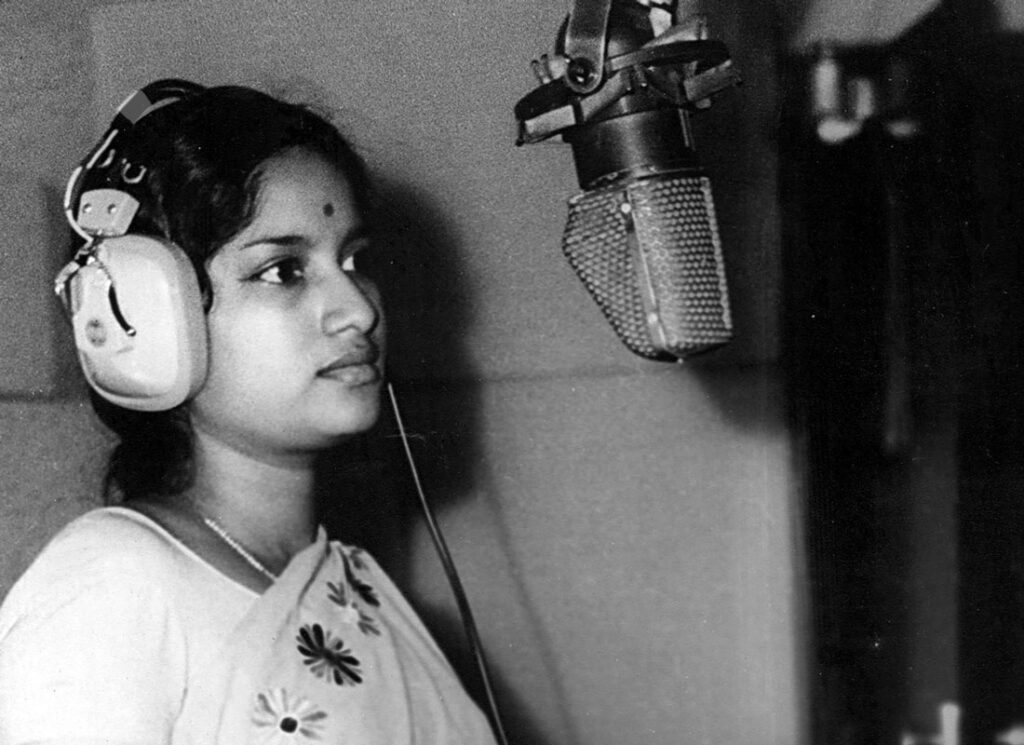In October 1983, singer Vani Jairam had a surprise meeting with the then Prime Minister Indira Gandhi. She sang. She was told that Indira wanted her to sing the Saraswati vandana (invocation) at the Vishwa Hindu Sammelan in Delhi. Her exquisite rendering won enthusiastic applause. After complimenting her on the stage, the PM said: “Every artiste calls on me, why have you never done so?” A shocked Vani responded, “I’m an ordinary citizen and you are the Prime Minister. How can I disturb you?” The PM turned to her PA and said “Please give Vani Jairam an appointment for Monday.” Later, Indira received and spoke to her very kindly.
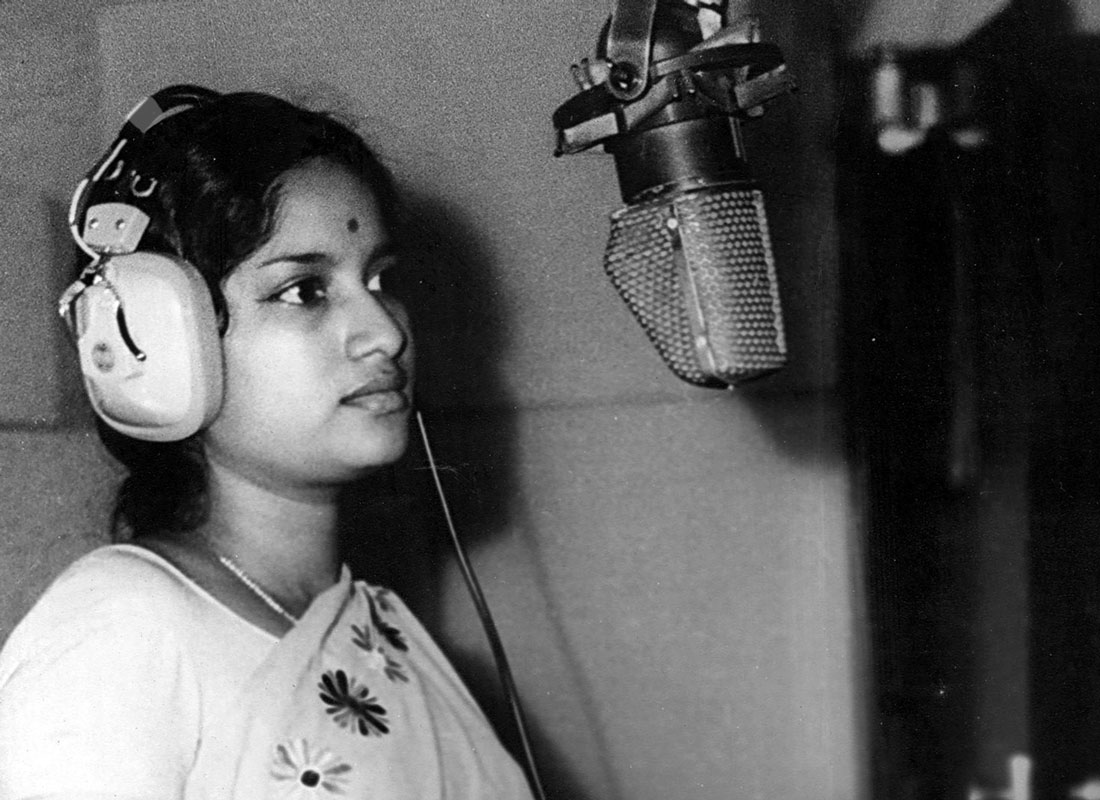
This is just one of many VIP encounters in Vani’s illustrious 50-year career. Born in 1945 in Vellore, she died at the age of 78 on February 4 this year from an accidental fall at her residence. The music world was shell-shocked. She sang more than 10,000 songs in 19 languages, winning three national awards, two from Filmfare, a Tansen Samman, several state government honours, countless private awards, and one in New York last year. A Padma Bhushan award for her had been announced just a few days before her death.
Former PM Indira Gandhi asked Vani: “Every artiste calls on me, why have you never done so?” A shocked Vani responded, “I’m an ordinary citizen and you are the Prime Minister. How can I disturb you?”
Vani’s fans included millions high and humble. On one occasion, she sang at the Bengali Association in Delhi. Former Union minister Sushma Swaraj told Vani that her Guddi song Hum ko man ki shakti dena was inspirational, and she listened to it every day. She invited Vani to her home for lunch. At her home, Sushma asked Vani to sing the song, and got her husband and daughter — and even her dog — to listen.
Vani has been honoured and complimented by several CMs and ex-CMs of Tamil Nadu — Kamaraj, Bhaktavatsalam, Karunanidhi, MGR and Jayalalithaa.
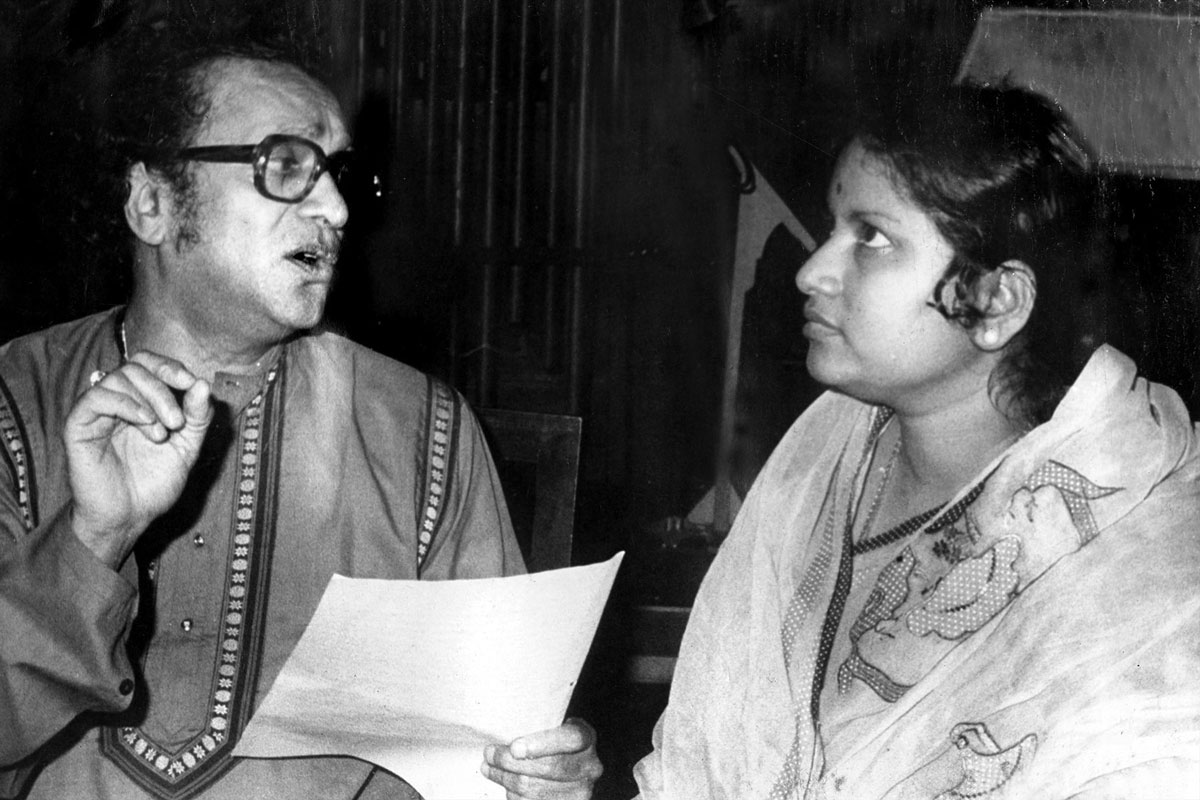
When MGR launched AIADMK, the theme song Vaasal engum rettai illai kolamidungal (“draw the two leaves rangoli at every doorstep”) rendered by Vani Jayaram, became the party’s anthem.
Jayalalithaa loved Vani’s song Engiruntho oru kural vandhadhu, adhu endha devadhaiyin kuralo (“A voice came from somewhere, I don’t know which angel’s voice it was”) from the 1975 Avandhan Manidhan, a Jayalalithaa-Sivaji starrer. Music was composed by M S Viswanathan.
Vani Jairam was born in a musically inclined family. Her mother was a singer herself. A prodigy, the child recognised ragas even at the age of five. She was trained in Carnatic music by Kadalur Srinivasa Iyengar, T R Balasubramanian and R S Mani. She sang for All-India Radio at the age of eight. She gave concerts even during her teens.
Vani excelled in school and college studies and a range of extracurricular activities — singing, dramatics, drawing, painting, cooking and embroidery. She won prizes both for academic performance and for acting and singing. However, what fascinated her was Hindi film music. “I admired the melody and the perfection in the songs of Rafi, Lata, Manna Dey, Kishore and others,” she said. She sat glued to the radio on Wednesday evenings, absorbed in Ameen Sayani’s Binaca Geetmala. She dreamed of the time when she would figure in that programme.
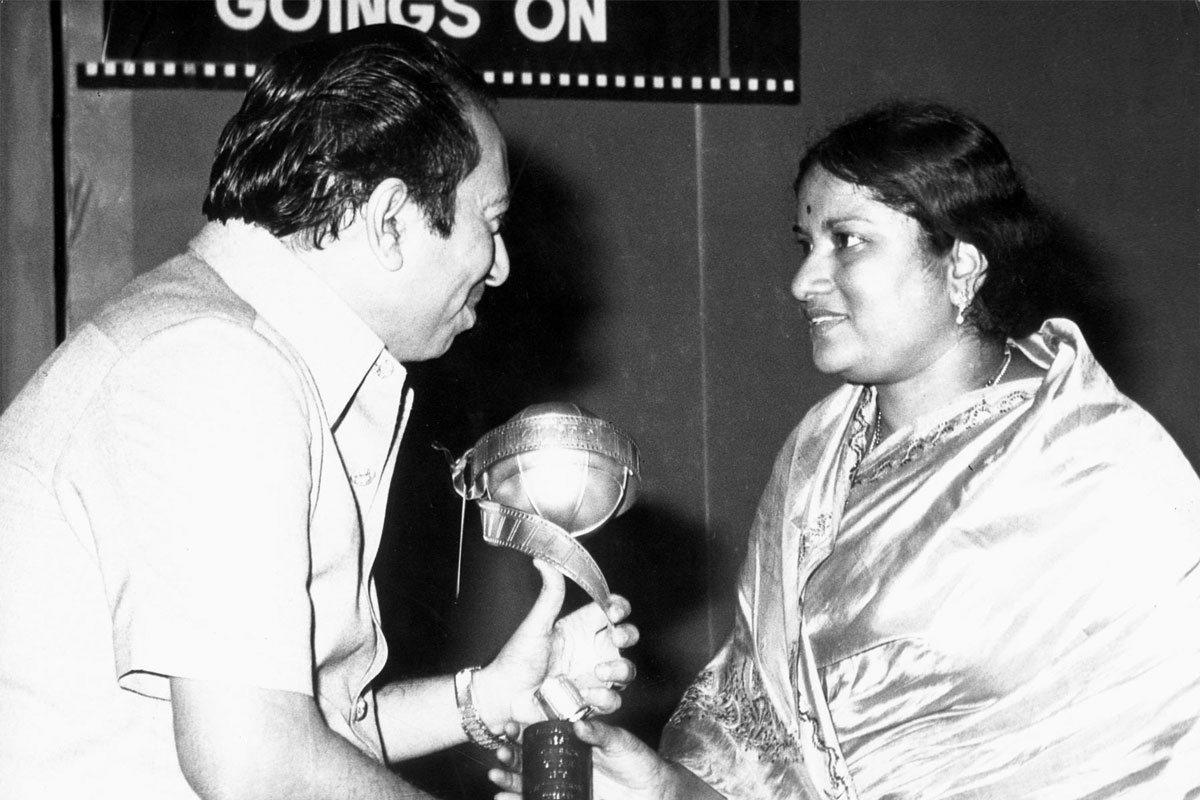
Her mother remarked “Why this craze for film music? Wait till you get married. You can do film music if your husband approves.”
After graduating, Vani took up a job with the State Bank of India. In 1969, she got married to Jairam, a corporate executive. He was a fine sitar player, tutored by Pandit Ravi Shankar himself. He persuaded Vani to learn Hindustani music. The famous Ustad Abdul Rehman Khan of the Patiala gharana agreed to be Vani’s guru after hearing her sing.
The ustad was an exacting guru. He made Vani give up her job, and trained her not merely in Hindustani music but also in voice culture, something that helped Vani greatly in her career. She learnt the nuances of various vocal forms such as thumri, ghazal and bhajan from the ustad. He introduced Vani to composer Vasant Desai, who was hugely impressed by her voice and talent and signed her for a Marathi album with the legendary Kumar Gandharva, and also for his first feature film Guddi (1971).
Music critic Surendran Menon said that if Vani sang a 1973 song in 2023, the sruti would be the same. “My body has aged, not my voice,” Vani herself remarked.
Audiences loved the film, and Vani’s own debut was a sensation; her voice and classical prowess won her generous laurels. The song Bole re papihara, now a classic, was hummed everywhere and won five awards including the prestigious Tansen Samman for classical film songs. It topped the Binaca Geetmala chart for 16 weeks running. “The first time it happened, I shed tears of ecstasy,” she said. The haunting children’s chorus song in the film, Hum ko man ki shakti dena, also made it to the Binaca charts. It became the school prayer in many schools of North India. Vani toured widely all over Maharashtra accompanying Vasant Desai, and taught children these and other songs.
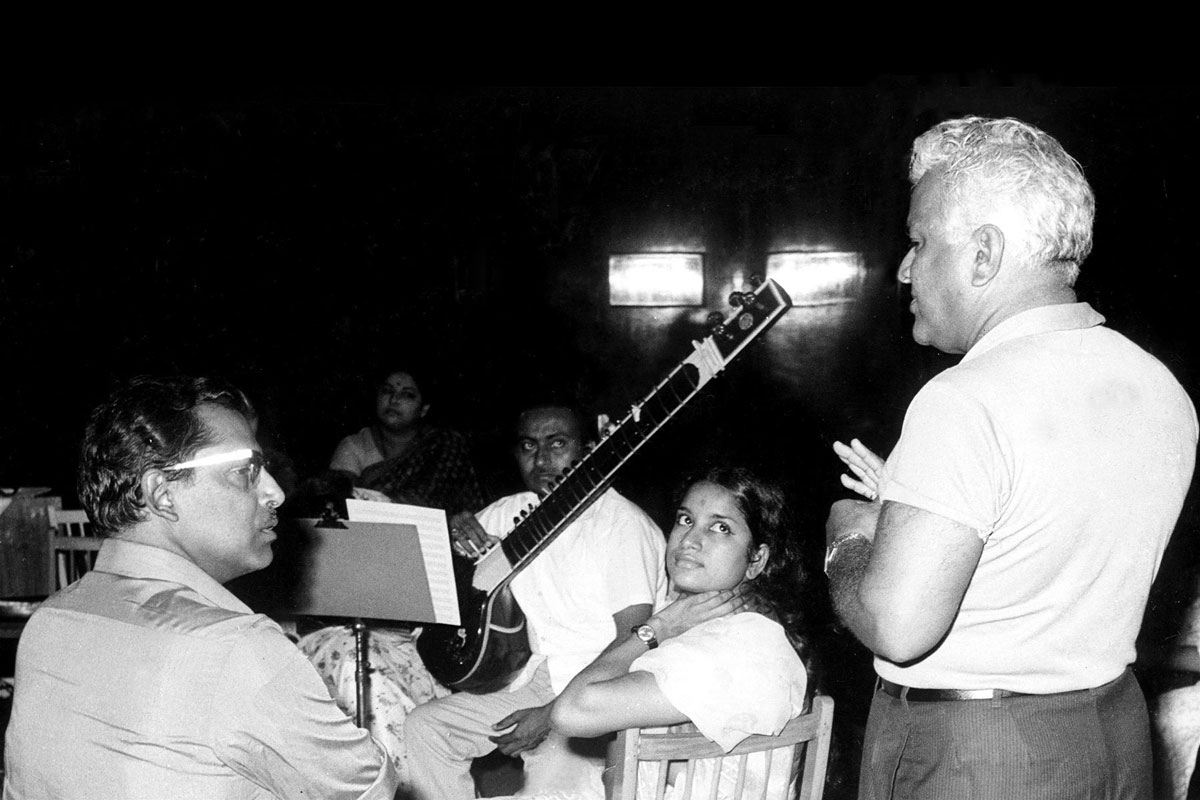
Top Bollywood composers sought Vani. One of the many notable songs that ensued was Moajan souten ghar from Pakeezah (1972) for Naushad. But the Guddi triumph was not replicated. Vani’s next big hit in Bollywood was for the classic Meera (1979). Under the baton of maestro Ravishankar, she sang 12 alluring bhajans, including Mere to giridhar Gopala, which won her a Filmfare award for best playback singer.
Tamil and South Indian cinema
The 1970s saw Vani’s epoch-making entry into Tamil and South Indian cinema. Though P Susheela and S Janaki were well-established by then, Vani was loved by top composers, the music industry and the public because of her melodious voice, her perfect intonation, her knowledge of classical ragas, her wide range as a singer, and her sweet temperament.
On the importance of classical training, she once said, “Unless you understand the colour of a raga, you can’t do justice to a song. Training in classical music enables perfection, singing without flaws.”
In 1974, Vani’s romantic song Malligai en mannan for composer M S Viswanathan in Dheerga Sumangali echoed from every nook and corner of Tamil Nadu. Thus began a beautiful and productive partnership between Vani and the legendary MSV, who said Vani should have come to the Tamil film industry 20 years earlier. She went on to sing numerous songs in all the southern states. In fact, she was the leading singer of both Malayalam and Oriya films for 10 years.
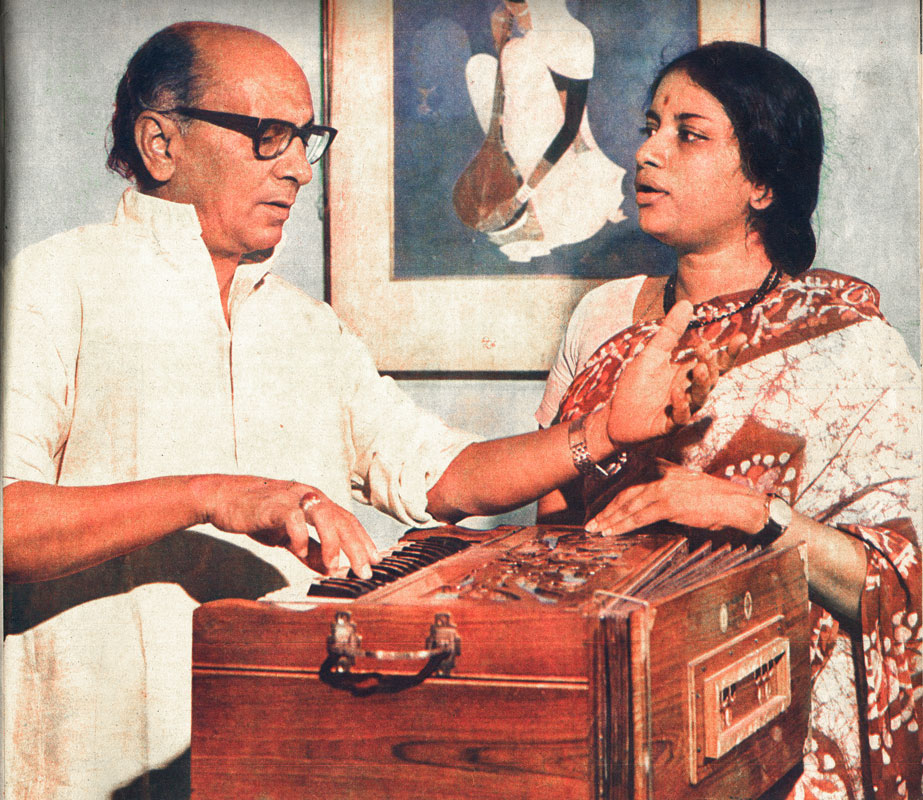
In 1975, Vani won her first national award as best female playback singer for her two iconic songs in Apoorva Raagangal — Ezhu Swarangalukkul and Kelviyin Nayagane. The film was a box-office hit though released on the same day as Sholay; it was remarkable also because it starred both Kamal Haasan and Rajinikanth. Vani’s magnificent performance in the film led to a flood of offers from top music composers. In 1977, she first sang for Ilaiyaraaja in Bhuvana Oru Kelvi Kuri. Two years later, she won a state government award as best female playback singer for the song Nane nana yaro thana composed by Ilaiyaraaja for the film Azhage Unnai Aarathikkiren (1979).
In 1980, the Telugu film Sankarabharanam (direction: K Viswanath, music direction: K V Mahadevan) took the industry by storm. The saga of a classical singer, the film offered a dozen songs based on classical ragas, rendered superbly by S P Balasubrahmanyam and Vani Jairam. Later dubbed into Tamil and Malayalam, it had as big an impact on South Indian cinema as the 1952 Baiju Bawra had on Hindi films. It got Vani Jairam her second national award as best female singer for the songs Manasa sancharare and Dhorakuna.
Vani was sometimes asked whether the “Mangeshkar monopoly” aborted her Bombay career. She would just smile and respond that she had always been a huge Lata fan.
Vani sang hundreds of popular songs in films such as Mullum Malarum (1978), Rosappoo Ravikaikaari (1979), Palaivana Solai (1981), Anbulla Rajinikanth (1984), Oru Kaidhiyin Diary (1985) and Punnagai Mannan (1986). She was so busy that she sometimes recorded 20 songs a day, including a few in Bengaluru!
In 1991, Vani won her third national award as best playback singer for her spellbinding rendering of the song Aanathi neeyara in the Telugu film Swati Kiranam, directed by K Viswanath, with music direction by K V Mahadevan.
In recent years, Vani was more active with private albums of devotional songs and with public concerts than with the film industry.
Vani’s Kerala connection
Malayalam music fans have always had a strong emotional bonding with the singer, who sang some 600 songs in Malayalam films after her 1973 debut with the solo Sourayudhathil vidarnnoru, a Salil Chowdhary gem for the film Swapnam. She worked with all leading composers to produce countless great melodies.
Carnatic singer Nithyasree Mahadevan said Vani Jairam’s voice was mesmeric at any pitch, any octave. Music critic Surendran Menon said that if Vani sang a 1973 song in 2023, the sruti would be the same. (“My body has aged, not my voice,” Vani herself remarked.)
Composer Deva (Devanesan) said Vani could sing effortlessly in many genres. Like SPB, she would be ready in less than 15 minutes to record a song and would pick up very quickly the intricacies and nuances of a composition. Abhaswaram Ramji said Vani was the only singer who sang devotional songs in so many languages.
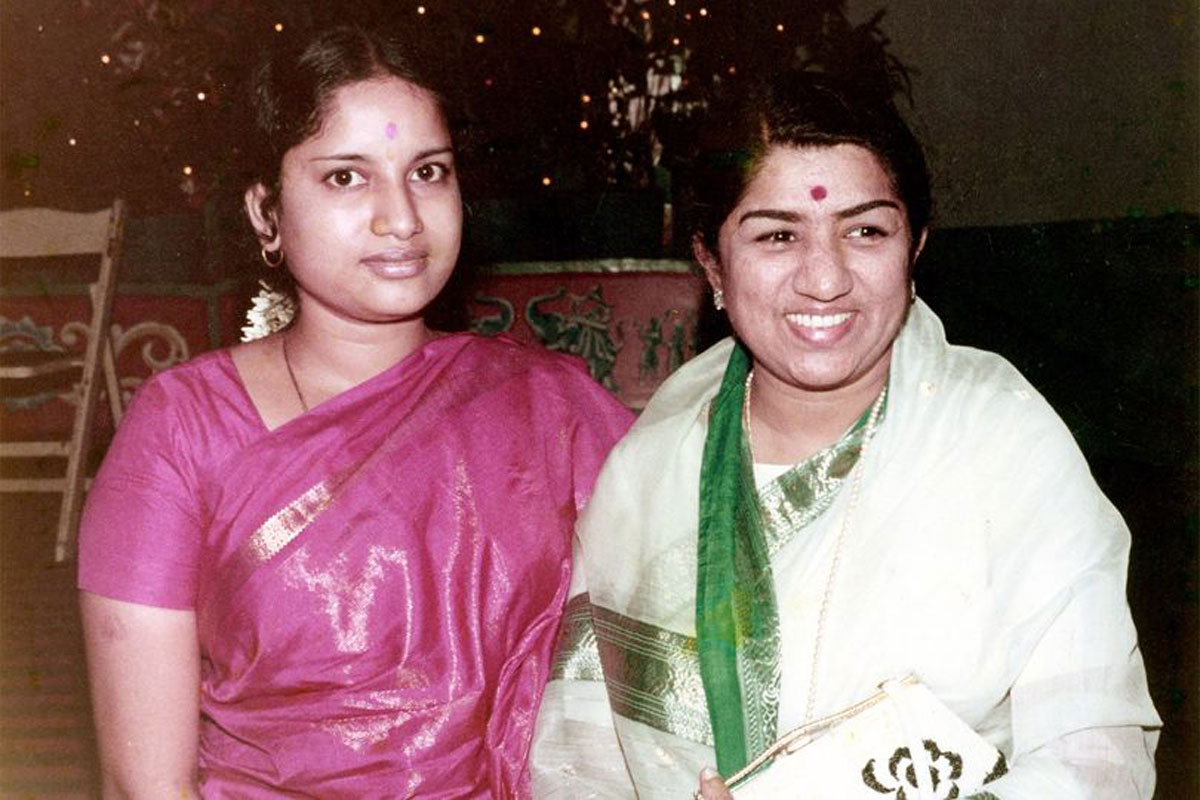
Vani Jairam was known for her humility (she never promoted or publicised herself) and classical roots. However, these admirable qualities were not congenial for longevity in Bollywood.
Vani was sometimes asked whether the “Mangeshkar monopoly” aborted her Bombay career. She would just smile and respond that she had always been a huge Lata fan, she had grown up listening to Lata’s songs, and had sung many of them herself during her college days. There can be only one Lata Mangeshkar, she said graciously.
Actor Y G Mahendra says composer MSV told him that Vani had a “blotting paper throat”! It could absorb anything immediately. YGM added: “We are lucky that Vani didn’t stay on in Bombay and returned to Tamil Nadu. It was like goddess Saraswati coming back, a boon for South Indian cinema. She never sought awards, they came to her. She had a fine sense of humour and laughed at all my jokes.”
He recalled that Vani was very agitated when her guru Vasant Desai died in a lift accident in Bombay in 1975. “No one should die like this,” she had remarked. But she herself died after an accidental fall in her own house. “She should not have died like this, she had so much more to offer the world of music,” Mahendra added.
The author is a senior journalist and a member of the Rotary Club of Madras South






